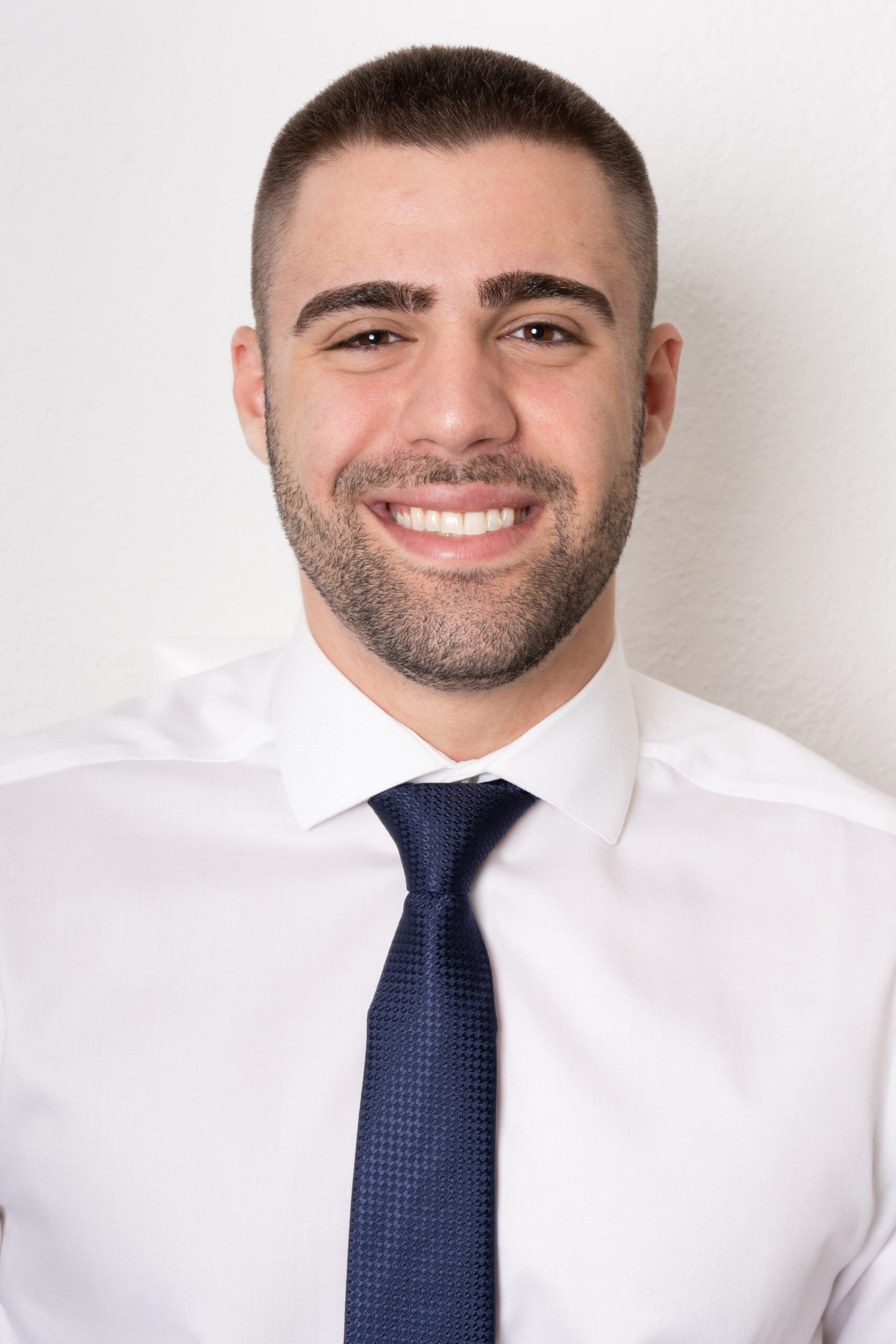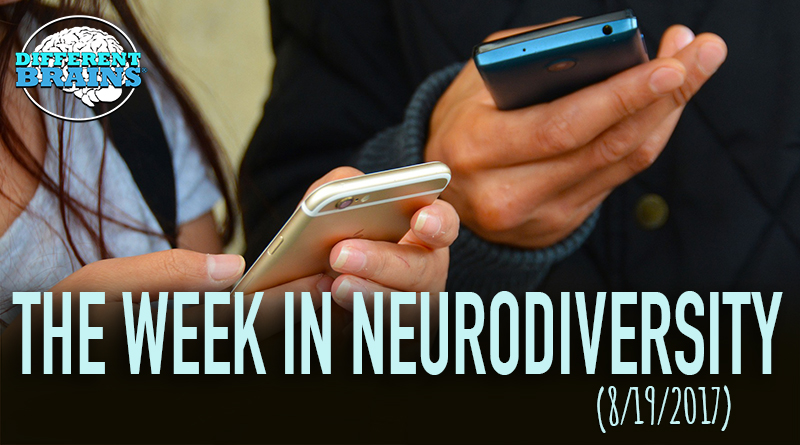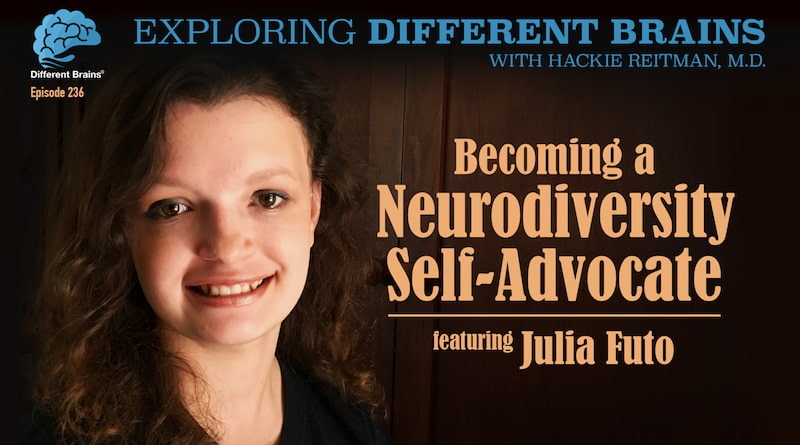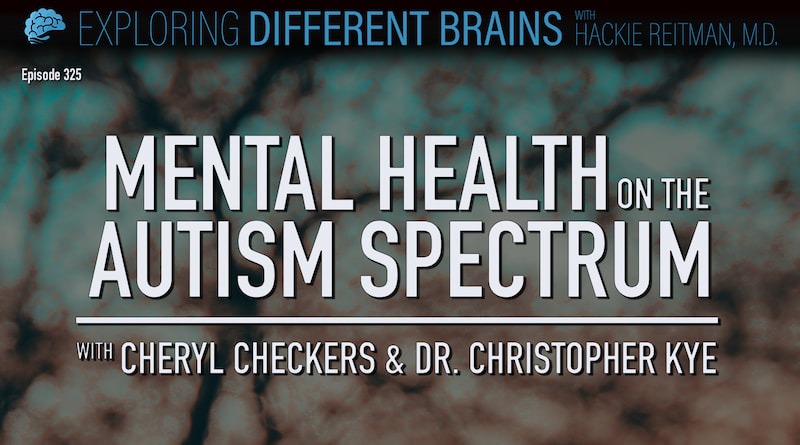Cognitive Overload | ADHD Power Tools w/ Ali Idriss & Brooke Schnittman

(7 mins) In this episode of ADHD Power Tools, Ali and Brooke discuss cognitive overload!
Brooke Schnittman, MA, ACC, BCC is a certified coach who works with children, students, teens, adults, and parents with or without ADHD. She has been nominated for multiple awards including “Best In Show Community” and ”Advocating For Another.” She is the creator of What’s Next and ADHDEdCamp.
Ali Idriss is a Different Brains intern and ADHD self-advocate. He aspires to share his journey and help others with the tools that have allowed him to overcome many of the challenges along the way, as he co-hosts ADHD Power Tools and conducts research on college students with ADHD. Ali has completed his bachelor’s in Biological Sciences at Florida Atlantic University and is currently completing his second bachelor’s in Neuroscience and Behavior at Florida Atlantic University. He is also an Emergency Medical Technician and is aspiring to become a physician
For more on Brooke and her work, visit: https://www.coachingwithbrooke.com/
FULL TRANSCRIPTION:
ALI IDRISS (AI):
Hello, Brooke, today I want to talk to you about cognitive overload. I want to ask you: What is it? Where do we see it? And how do we tackle it?
BROOKE SCHNITTMAN (BS):
Sure. So cognitive load is essentially just the number of working memory resources that we have. So when you have cognitive overload, by definition is a situation where one has given too much information at once or too many simultaneous tasks, resulting in not being able to perform or process the information as it would otherwise happen. So I see it very often in decision making with ADHDers. And in the technology of the COVID era, we have back to back to back zoom meetings. And one thing that I notice on Zoom, compared to an in person meeting is we look at ourselves all the time, do we look good? Am I positioned the right way? You know, can you they see, this is my background fine. So many things that are happening, while we’re trying to pay attention to what the person is saying, or what’s happening in the meeting. So an ADHD ear can or even a neurotypical can get cognitive overload on a Zoom meeting by looking at themselves too much. So one thing that I actually do now is I hide myself. And you can do that by if you’re on Zoom, clicking those three dots on the top right of your picture, and it said, hide self view. So this way, I’m just looking at you. I have no idea how I look. And if you think about it in person meetings, you have no idea how you look, either. So you’re just in the meeting.
AI: I didn’t even know that was a thing. That’s great. Yeah,
BS: Yeah, absolutely. So that analysis paralysis of how do I look? Should I look the right way? It interferes with us getting the information that we need to absorb.
AI: Yeah, I didn’t even know you could do that on Zoom. That’s great. So it’s kind of like you’re losing focus due to that cognitive overload that the intake of information that . That without working memory, I mean, like working, I feel like cognitive overload in decision making, especially affects your working memory, you link it with a you know, other information already know. And then you create a behavioral response based on that information, and you want to focus on it.
BS: Working memory in general, is an area that many individuals with ADHD struggle with, so like to bear a cognitive load when it’s strictly on working memory. And now you have all this extraneous information that you’re thinking about in this analysis, paralysis, it’s this decision making fatigue, that all can add to the cognitive overload.
AI: Mmhmm. 100%. And I mean, even day to day, right, I feel like many things can cause cognitive overload. That’s one good example. You give us brokers, the Zoom meetings and looking at yourself but even just like hanging out on social media so much and multitasking all day long, and depending on what you know, what your job setting is, or what your job description is, things can get things going overload and you go home and you’re just like, you want to sit maybe read like an article or a book and you’re like, oh, one, two pages, I’m out of this, you know.
BS: Or you’re not even focused while you’re reading it, because you have so many other things on your minds.
AI: Exactly, exactly. And that that then then you start losing attention. And so it comes a whole spiral of events and you kind of just kind of take it take a break, get away, right? Give you that give yourself that quiet time for reflection. And I want I want to kind of touch on that ways to give yourself quiet time for reflection, right? If you are experiencing cognitive overload, which is affecting your attention your working memory for example, I just got it i I’ve been to this for a while but I’ve been doing a lot more often is yoga. The yoga studio I go to they have like three different classes, regular yoga, much lower version and like a workout like a fit 45 type yoga. And what I noticed when I go and do do yoga, these workouts is that whole hour that I’m in there, I’m not focused on anything else, but the workout. I’m not taking a break on my phone. I’m not getting messages or listening to music or a phone call all that extra extra stuff, right? And I noticed if I were to go to the gym, for example, I would hang out my phone kind of scroll through Twitter, between my breaks in between sets and reps and I kind of really, really, really appreciate that I appreciate that break from the phone for an hour. It’s kind of like putting your phones on start keeping in the locker outside.
BS: Sounds like you’re in a flow state when you’re doing your yoga, which is something we’re gonna talk about next.
AI: We’re gonna talk about the next episode. And funny enough, the class for yoga that I go to is called Flow, which makes total sense. Yeah, it’s called Flow. Yeah. And so yeah, and there’s many other things, right? So like, students, people, my age range, you know, the college students, etc. We are always on a phone, whether it’s social media, or even, I mean, many jobs these days are oriented around the phone, you’re getting work done, and you’re building your career on your phone and getting your income through your phone. It’s your phone’s a mini computer, it’s your basically your life in your hands. Right? So it’s like, how can you kind of push away the unwanted information to lower that cognitive to keep away the cognitive overload? Time Limits on your apps, do not disturb on, downtime. There’s so many features if you go into your settings on I have an iPhone, I don’t know for others with Android, but I, I would, I would assume there are features like that on other phones, but you can do certain app limits, customized app limits, how much times a day.
BS: I know we spoke about that with the episode ADHD and distractions. So that can definitely be something that if you’re curious about to look that up, sorry, I don’t mean to cut you off.
AI: Go ahead. But yeah, we I’ve talked to I feel like I’ve talked about this before for sure. But then there’s like things like downtime as well, where, for example, you can automatically put your phone do not disturb depending on what location you’re at. If you go to the library, if you go to work, your phone automatically would Location Services automatically goes on downtime puts everything on Do Not Disturb, which is super important. But yeah, just those are some some tools right there, I think will help with that. Cognitive information overload that does affect a working memory. And does it Yeah,
BS: yeah. And stay tuned for our episode on adrenal exhaustion because I think that both of them go hand in hand as wives. A lot of
AI: this stuff goes hand in hand for sure. But yeah, stay tuned. Stay tuned.

Ali Idriss is a Different Brains intern and ADHD self-advocate. He aspires to share his journey and help others with the tools that have allowed him to overcome many of the challenges along the way, as he co-hosts ADHD Power Tools and conducts research on college students with ADHD. Ali has completed his bachelor’s in Biological Sciences at Florida Atlantic University and is currently completing his second bachelor’s in Neuroscience and Behavior at Florida Atlantic University. He is also an Emergency Medical Technician and is aspiring to become a physician.




